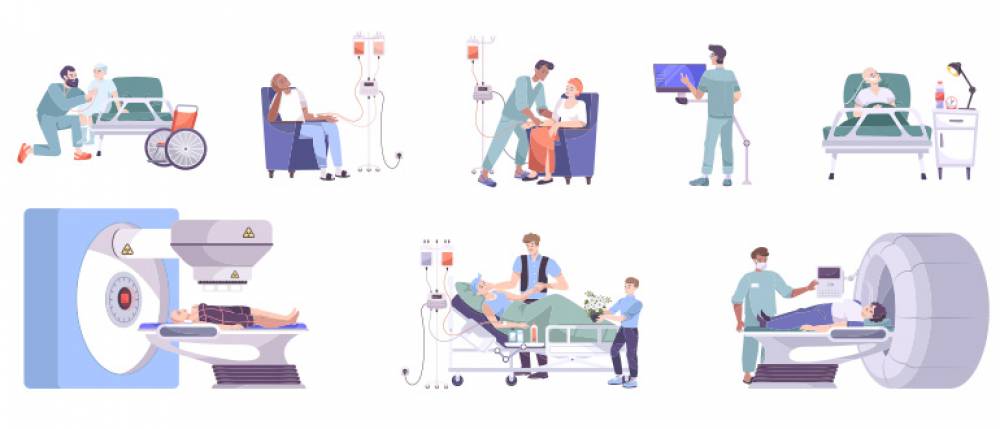5 Easy Facts About Arogyajivan Medical Tourism For Oncology Described
5 Easy Facts About Arogyajivan Medical Tourism For Oncology Described
Blog Article
Arogyajivan Medical Tourism For Oncology Fundamentals Explained
Table of ContentsUnknown Facts About Arogyajivan Medical Tourism For OncologyHow Arogyajivan Medical Tourism For Oncology can Save You Time, Stress, and Money.5 Easy Facts About Arogyajivan Medical Tourism For Oncology ShownExcitement About Arogyajivan Medical Tourism For OncologyArogyajivan Medical Tourism For Oncology Fundamentals ExplainedGetting My Arogyajivan Medical Tourism For Oncology To WorkThe Ultimate Guide To Arogyajivan Medical Tourism For Oncology
If you have cancer cells, your wellness treatment copyright will advise one or even more ways to treat the disease. The most common treatments are surgery, radiation treatment, and radiation. Various other options include targeted treatment, immunotherapy, laser, hormone therapy, and others. Right here is an introduction of the different therapies for cancer and exactly how they work.Cancer cells grow and separate faster than normal cells in the body. Since radiation is most unsafe to promptly growing cells, radiation therapy damages cancer cells much more than typical cells. It uses materials made by the body or in a lab to help the immune system work harder or in a much more targeted method to fight cancer.
Some have toxic substances or radioactive substances affixed to them. It utilizes surgical treatment, or medications to stop or obstruct the body's natural hormonal agents. This assists slow down the growth of cancer cells.
Thin fibers at the end of the tube direct the light at the cancer cells. Lasers are most usually made use of with other types of cancer cells therapy such as radiation and radiation treatment.
What Does Arogyajivan Medical Tourism For Oncology Do?

An oncologist is a cancer cells physician. These doctor concentrate on oncology the branch of medication that concentrates on diagnosing, hosting and dealing with cancer. AdvertisementCleveland Facility is a charitable academic clinical facility. Marketing on our website helps support our objective. We do not endorse non-Cleveland Clinic services or products. A visit to an oncologist provides you a chance to chat with a specialist who comprehends what you're going through.
They prepare to help, and they'll walk with you every action of the way. Oncologists can: Run tests to diagnose cancerOffer a 2nd viewpoint on a previous diagnosisIdentify treatment optionsDiscuss each option's advantages and side effectsOversee cancer treatmentManage post-treatment care Seeing an oncologist doesn't necessarily imply you have cancer cells. An oncologist obtains entailed if you have symptoms that could be cancer.
Arogyajivan Medical Tourism For Oncology for Dummies
The quicker you obtain a medical diagnosis, the much better. Several cancers are extra treatable in the beginning. Cancer is a complicated condition. People with cancer see it here cells often need several oncologists on their medical care team. This multidisciplinary strategy allows each expert to concentrate on a various area of your treatment with an usual goal of joint, compassionate treatment - ArogyaJivan Medical Tourism for Oncology.
Radiation can shrink tumors prior to surgery or eliminate remaining cancer cells after surgery. You could have radiation as a stand-alone treatment or in combination with other therapies.
Little Known Facts About Arogyajivan Medical Tourism For Oncology.
Do I have cancer? Your oncologist is here to help you browse these feelings. When your oncologist gathers the information they need, they'll: Go over the results of your testsSend their searchings for to the health care copyright that referred youTell you whether you have cancer cells and if so, what kindTalk to you regarding various treatment optionsListen to your problems and anxietiesGive you sources that can use assistance and extra informationYour initially oncology go to might take up to three hours.
Oncology is the research of cancer cells. Words originates from the Greek word for lump or mass. The clinical field of oncology covers cancer cells research, risk and prevention, medical diagnosis, treatment, and survivorship. Professionals learnt oncology provide care for individuals who go to risk for cancer, being treated for cancer, and dealing with cancer cells after treatment.
:max_bytes(150000):strip_icc()/adjuvant-therapy-519890.FINAL-d54c6434b8574bb3a76d8c8587ae0223.jpg)
5 Easy Facts About Arogyajivan Medical Tourism For Oncology Shown
treat cancer cells in kids and teenagers. Some types of cancer cells happen frequently in these more youthful age teams. When these types of cancer cells occasionally happen in grownups, those adult clients may select to work with a pediatric oncologist. deal with cancers inside the breast area, including the lungs and esophagus. ArogyaJivan Medical Tourism for Oncology. deal with cancers in the genitourinary system, such as the bladder, kidneys, penis, prostate gland, and testicles.

Sometimes when cancer is believed but not diagnosed, an oncologist might also be included. Lots of people will continue seeing their oncologist for follow-up appointments to directory check for indications of cancer cells coming back and to take care of any this page side effects from treatment.
Not known Details About Arogyajivan Medical Tourism For Oncology
If you have a cancer medical diagnosis and are evaluating your therapy alternatives, take into consideration joining a medical trial. They might appear daunting at initially, professional trials can be incredibly advantageous no matter what kind or phase of cancer cells you have. Benjamin Levy, M.D., clinical director of the Johns Hopkins Kimmel Cancer Cells Center at Sibley Memorial Medical facility and a lung cancer researcher, describes several of the reasons to sign up with a medical trial.
Report this page